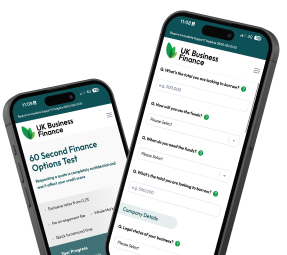
What is an Independent Business Review?

An Independent Business Review – or IBR – is a process usually initiated by a bank or other lending institution should they have concerns over the financial position of an existing or prospective borrower. This could be requested either by an existing lender, or demanded by a bank before they give their agreement to lend funds to a company. The request for the IBR usually comes from the bank’s insolvency team if they have reason to be concerned over the solvency of your own business.
Who carries out the IBR?
The IBR will be undertaken by a firm of accountants chosen from your lenders preferred ‘panel’. It is designed to provide the lender with an unbiased view of your company’s financial position, and provides reassurance that your company is a sound lending prospect. The main thing a lender is concerned with is that you are in a position to be able to pay back the money you have borrowed at the agreed rate; for an investor they will be looking to assess your company’s potential for success.
Despite the bank asking for the IBR, and choosing the reviewing accountant, it is always the borrowing company’s responsibility for paying the fees associated with the process. Costs vary depending on the requirements of the lending company and the time the accountant will be spending on conducting the review. These costs will be agreed with you prior to the commencement of the IBR, although you should be warned that the fees involved are often significant.
Will I have to be involved in the process?
As company director, you will be required to assist the reviewing accountant throughout the process. Failure to comply, or being otherwise unable to provide documents or information when requested, will reflect extremely badly on your company, its finances, and will result in extra time-costs which you will have to cover. Showing your company’s financials are in order and that you are on top of the administration duties will not only create a positive impression, but will also demonstrate to the reviewing accountant that you are fully in control of your business.
Solutions Based Funding Options
- UK's Leading Business Funders
- Free Brokerage Service
- Full Market Access
What sort of things does an Independent Business Review look at?
An IBR is not a one size fits all review. Instead it will be tailored to the individual company and will seek to investigate any particular concerns the lender has raised. It will consider the specific risks and challenges facing a company based on the industry they are operating in, their past performance, and also their plans for the future. Other areas which are typically put under review include:
- Profit forecast
- Analysis of the company’s cash flow
- Consideration of a company’s assets and liabilities
- Review of operations
- Management and systems appraisal
- Market positioning
- Assessment of the group structure (if applicable)
What happens after an IBR?
After the appointed accountant has completed their investigation into your company, a written report will be produced which will typically contain a number of recommendations. This may mean that the bank halts your line of credit, requests additional safety measures on any further borrowing (e.g. by asking you to sign a personal guarantee), or even calling in the money you owe them and demanding that this is repaid.
Alternatively, it may be recommended that further investigations are carried out; these tend to be focused on a particular area which has been noted as potentially concerning. In other cases, the IBR may flag up serious worries which could lead to restructuring measures being implemented in order to safeguard the future of the company. Restructuring comes in many forms, but could involve renegotiating the terms of existing debt, closing down unprofitable arms of the company, or disposing of surplus assets.
How BTG Begbies Traynor can help
As an objective assessment of your business, an IBR can be extremely useful when it comes to understanding the position of your company and formulating plans for the future. However, in order to realise the benefits that can be gained from an IBR, you need to ensure that you act on the results.
Whether you need to consider alternative financing, would like to discuss restructuring or business recovery methods, or feel your company may be heading towards serious trouble, contact the experts at BTG Begbies Traynor. Our nationwide team of licensed insolvency practitioners can talk you through all of the options open to you and your company and help you put a plan in place to get your business back on a solid financial footing. Call our experts today on 0800 063 9221 to arrange a free consultation.
More BTG Begbies Traynor Articles
Contact the team
Key Contact

You're in Safe Hands
- 35+ Years Experience
- 100+ UK Offices
- Confidential director support
- Insolvency market leader
Article Archive
Article Categories



